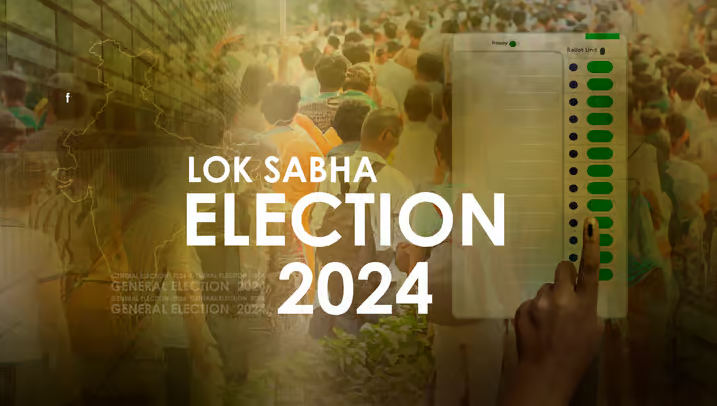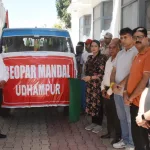As India’s parliamentary elections approach their concluding phases, the nation stands at a critical juncture. With only two phases of voting left, the anticipation and tension are palpable across the country. This election, characterized by fervent campaigns and vigorous debates, is being fought on a multitude of issues presented by all political parties. The central question remains whether the ruling party, led by the Bharatiya Janata Party (BJP), will secure another term with a commanding majority or if the incumbency factor will tilt the balance in favor of the opposition. This essay delves into the dynamics of this electoral battle, the confidence levels within the competing alliances, and the crucial role of regional parties in shaping the outcome.
The BJP, under Prime Minister Narendra Modi, has enjoyed a significant majority in the previous term, driven by promises of economic reform, national security, and a strong leadership image. However, incumbency brings with it the weight of expectations and the scrutiny of performance. The past term has seen a mixed bag of achievements and challenges. Economic growth, while substantial in some quarters, has faced criticism for issues such as unemployment and agricultural distress. Social policies and the handling of communal tensions have also been points of contention.
Despite these challenges, the BJP has campaigned on the strength of its nationalistic policies, infrastructural projects, and welfare schemes. Modi’s charismatic leadership continues to be a formidable asset for the party, rallying substantial support across various demographics. The party’s confidence is rooted in its belief that the electorate appreciates its decisive governance and development initiatives.
In stark contrast, the opposition, primarily led by the Indian National Congress (INC) and regional powerhouses, has focused on highlighting the shortcomings of the BJP government. The INC, rejuvenated under the leadership of Rahul Gandhi, has brought issues such as economic inequality, unemployment, and farmer distress to the forefront of its campaign. The Congress’s manifesto promises a more inclusive growth model, aiming to appeal to the marginalized sections of society.
The opposition’s confidence stems from the belief that anti-incumbency sentiments are strong enough to overturn the current government. They argue that the BJP’s policies have disproportionately benefited the wealthy, leaving large segments of the population disillusioned. The promise of a minimum income guarantee scheme and a renewed focus on secularism and social harmony are central to their appeal.
One of the most intriguing aspects of this election is the pivotal role of regional parties. India’s political landscape is diverse, with regional parties wielding significant influence in various states. These parties, including the Trinamool Congress (TMC) in West Bengal, the Samajwadi Party (SP) and Bahujan Samaj Party (BSP) in Uttar Pradesh, the Dravida Munnetra Kazhagam (DMK) in Tamil Nadu, and others, have the potential to be kingmakers in the event of a hung parliament.
The regional parties bring localized issues to the national forefront, addressing concerns that are often overlooked by the larger national parties. Their leaders, such as Mamata Banerjee of the TMC, Akhilesh Yadav of the SP, and Mayawati of the BSP, are influential figures who command substantial followings. These parties are likely to play a crucial role in post-election negotiations, potentially deciding the formation of the government.
The electoral arithmetic suggests that a coalition government is a strong possibility. The BJP-led National Democratic Alliance (NDA) and the Congress-led United Progressive Alliance (INDIA) both claim confidence in their ability to form the government. However, much depends on the performance of their respective allies and the support of regional parties.
If the BJP falls short of a majority, it will need to rely on its allies within the NDA and seek support from additional regional parties. Strengthening these alliances and potentially bringing in new partners will be crucial for the BJP.
On the other hand, the Congress, with its historical legacy and renewed vigor, aims to galvanize a broad coalition against the BJP. The UPA’s current allies include the Nationalist Congress Party (NCP), the Dravida Munnetra Kazhagam (DMK), and others. The Congress’s ability to forge post-election alliances with influential regional players like the TMC, SP, BSP, and the Telangana Rashtra Samithi (TRS) will be essential for its strategy.
From the voter’s perspective, the key issues influencing this election are economic performance, social justice, national security, and regional development. The rural-urban divide also plays a significant role, with rural voters focusing on agricultural policies, rural employment schemes, and basic amenities, while urban voters are more concerned with economic growth, infrastructure, and job creation.
The youth demographic, representing a substantial portion of the electorate, is particularly concerned with employment opportunities and educational reforms. Women voters, influenced by safety, social security, and healthcare policies, are another critical demographic.
Media and social media also play an unprecedented role in shaping public opinion. The proliferation of news channels, digital platforms, and social networks means that narratives are quickly formed and disseminated, influencing voters’ perceptions and decisions.
As the parliamentary elections enter their final phases, the outcome remains highly uncertain. The confidence expressed by both the ruling and opposition alliances underscores the competitive nature of this electoral battle. The role of regional parties is likely to be decisive, potentially leading to intricate coalition negotiations.
Regardless of the outcome, this election is a testament to the vibrancy and complexity of India’s democracy. It highlights the diverse priorities and aspirations of its electorate, the dynamic interplay of national and regional issues, and the enduring significance of political leadership. As India awaits the final verdict, one thing is clear: the coming days will be crucial in determining the country’s political future, with profound implications for its governance and development trajectory.
(Author is a columnist and can be reached at: [email protected])







